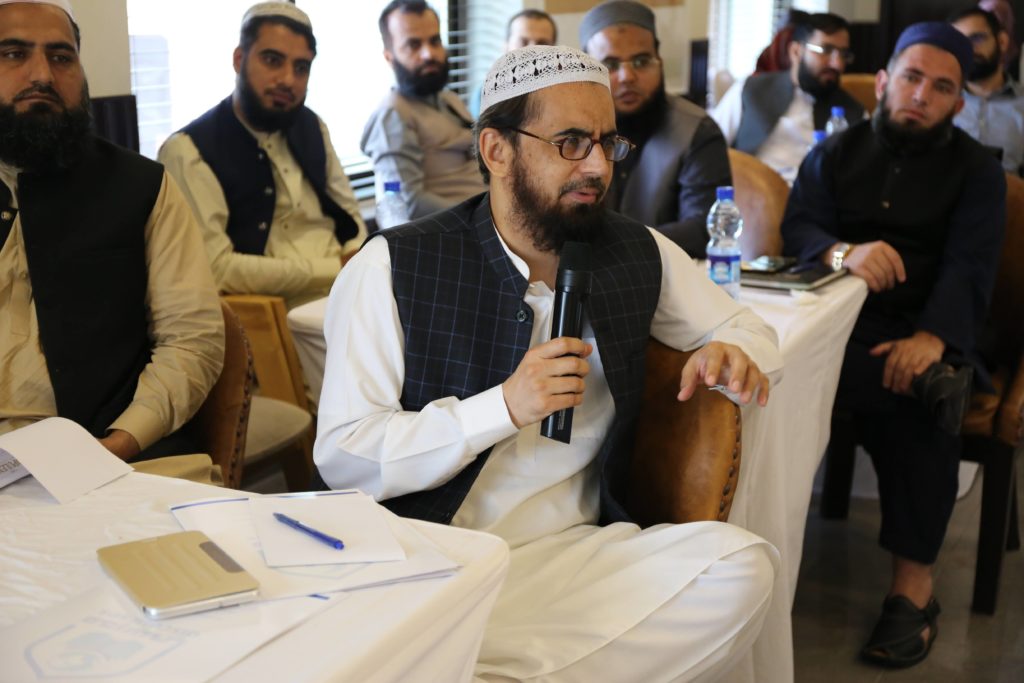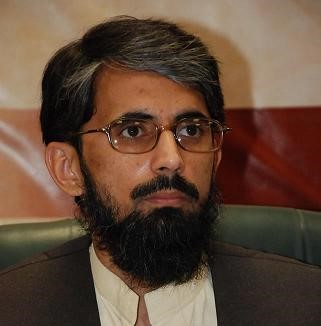
Madrasa Discourses has been one of the most instructive and most rewarding experiences that I have had in my intellectual journey. The project was conceived as a way to fill a gap that is often present in madrasa students’ education, namely the importance of history, science, and the humanities for understanding Islamic history and theology. Over the course of the five-year project, the faculty developed syllabi for filling this gap and have engaged with three cohorts of students in intensives, workshops, and online courses. At the end of the first iteration of the program, it can be said without doubt that Madrasa Discourses (MD) has helped madrasa graduates in a number of fundamental ways. In this brief post, I discuss three of these benefits.
First, as someone who myself is from a madrasa background, I can attest to the need for closer engagement with sciences and the challenges that modernity brings to Islamic philosophy and theology. Madrasa Discourses both deepened and broadened my understanding of the complexities associated with the modern scientific worldview and modernity from a religious perspective. Most madrasa graduates have only a very siloed Islamic framework for interpreting these matters. Madrasa Discourses seeks to broaden this interpretative framework by providing a nuanced understanding of the shifts that have taken place in the western intellectual frameworks for understanding both the natural and social world. One of the program’s initial main objectives was to advance scientific literacy among madrasa graduates, and this has remained a central focus up until the present. Instructors and guest lecturers employed a variety of lenses to critically understand the workings of modern science. Through these interactions Madrasa Discourses participants were able to better understand the different strands of inquiry about the interrelationship of science and religion. This led participants to develop a holistic view of the whole debate and opened them up to further engagement with history, culture, and politics.
Secondly, Madrasa Discourses reconnects traditionally trained ulama (religious scholars) with the broader Islamic intellectual heritage. In recent history, the madrasa system in South Asia shifted its focus from preserving and transmitting classical Islamic learning to forming sectarian identities, especially in Pakistan. This move was in response to the pressures and challenges posed by colonial modernity. Consequently, an environment of robust intellectual inquiry has been replaced by a madrasa culture of fashioning pristine and obedient minds that unfortunately preserves sectarian difference. Against this backdrop, our participants find it immensely instructive to engage with the rich treasure trove of Islamic intellectual tradition in a non-sectarian manner. Particularly instructive was our exploration through diachronically selected texts of how the Islamic tradition has wrestled with the question of the contradiction between reason and revelation and how this rich and diverse tradition is impacting the theological responses to challenges posed by the modern scientific worldview today.
Thirdly, Madrasa Discourses helps us rethink the stereotypical image of a monolithic west that is essentially working at cross purposes with the Muslim world. The participants realize that alongside the political and military policies of western governments and an overarching global agenda imposed by impersonal capitalist forces, there exists a very strong tradition of self-critique within western culture with which Muslim theologians and intellectuals can meaningfully engage. Challenging such stereotypes also reminds us of the need to develop alternative interpretations of the modern condition that recognize the multiplicity of human cultures and the diversity of human experiences. In this connection, Charles Taylor’s seminal work, A Secular Age was immensely helpful and the participants found his account of the rise of modernity much more convincing and insightful than the mainstream secularization theories.
And lastly, through Madrasa Discourses, we become acquainted with the rich and robust scholarship in the western academy that is seriously engaging very important questions related to the Islamic tradition and its place in the modern world. Having access to these debates and the contestations they provoke provides a context in which our participants can assess their own role and responsibility vis-à-vis contemporary challenges facing the Islamic discursive tradition.
Since its inception, Madrasa Discourses has faced the worst kind of criticism. This included a subversive media campaign that largely focused on political aspects unrelated to the substance of the project. One example is the critique that the project is hosted by a Catholic university and funded by an American donor foundation, an objection that betrays a lack of knowledge of how funding works in U.S. universities. Over the course of time, however, this negative campaign has died out and the project has succeeded in drawing serious attention from within the madrasa community and intellectual circles at large.
In Pakistan, our participants have planned to continue this intellectual exercise in multiple ways following the formal end of the Notre Dame-based projection in July 2021. We regularly meet in a weekly study circle wherein classical and modern texts both from Islamic and western traditions are studied and discussed. A number of MD graduates have undertaken introducing these themes and topics to new people in their personal circles who are interested in such discussions. And we are collaborating with some reputed institutions that feel motivated to launch modified versions of MD from their platforms.
On a personal level, this project has provided me an invaluable opportunity to work with incredible scholars and friends like Dr. Waris Mazhari, Professor Mahan Mirza, Dr. Joshua Lupo, and Dr. SherAli Tareen under the leadership of no less a visionary than Professor Ebrahim Moosa, whose commitment, passion, and enthusiasm for the revival of Islamic intellectualism stands at the heart of this whole endeavor [Moosa is a Co-Director of the Contending Modernities research initiative]. This privilege of personal friendships is coupled with the chance to have interactions and scholarly conversations with a host of scholars from diverse fields of study who we invited to speak during Madrasa Discourses sessions and workshops. This network of connections and relationships is surely a very precious asset that will aid my personal intellectual advancement and will build transcultural networks of academic conversation and dialogue.

